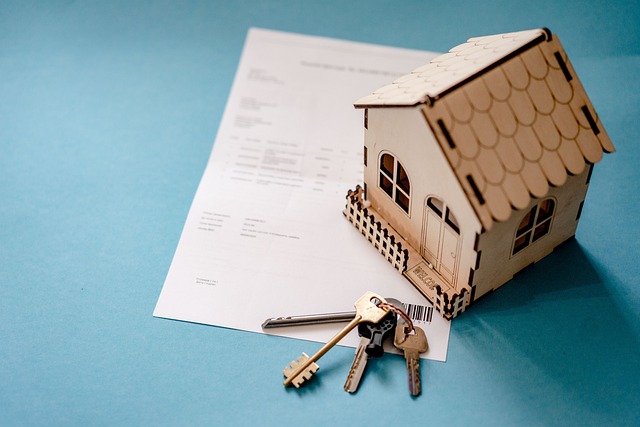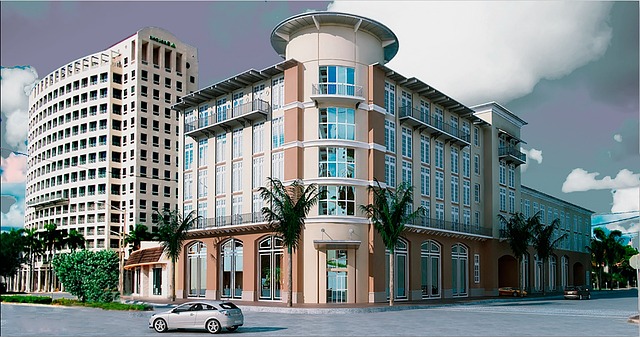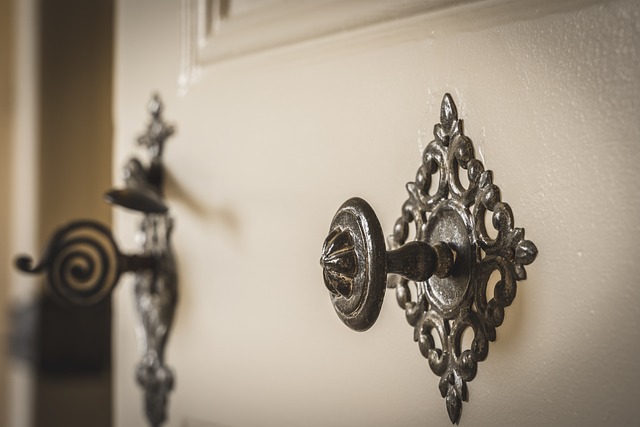When purchasing a resale Executive Condo (EC) in Singapore, it's crucial to understand the complexities of lease tenure and its implications on your residency and future options. Lease decay affects the original 99-year lease, reducing its value over time, which in turn impacts the EC's market value and your resale options. Additionally, all ECs are subject to the Selective En Bloc Redevelopment Scheme (SERS) by the Housing & Development Board (HDB), meaning they may be redeveloped and residents offered a new flat within the estate, provided they meet the eligibility criteria. It's essential for buyers to comprehend these terms and conditions as they will affect both your living situation and the overall investment value of the EC. Engaging a custodian-stakeholder with expertise in EC regulations and resale leases is vital to navigate these considerations, ensuring that your purchase aligns with your long-term housing goals in Singapore. Remember to conduct thorough due diligence, including reviewing all relevant documents and confirming eligibility with the CPF Board, to ensure a compliant and transparent transaction when buying a resale EC in Singapore.
navigating the complexities of real estate in Singapore, particularly when considering the purchase of a resale Executive Condominium (EC), requires a keen understanding of the legal landscape. This article delves into the nuanced aspects of EC ownership within the city-state, offering clarity on eligibility, documentation, and post-purchase obligations. Whether you’re an aspiring homeowner or a seasoned investor, the insights provided will be invaluable in your journey to secure a resale EC in Singapore. Understanding the legal framework, meeting eligibility criteria, and being aware of the documentation required are pivotal steps that ensure a smooth transaction. This comprehensive guide covers all these aspects and more, ensuring you’re well-equipped to make informed decisions about buying a resale Executive Condo in this vibrant Asian hub.
- Understanding Executive Condos in Singapore: A Resale Perspective
- The Legal Framework Governing Executive Condos (ECs) in Singapore
- Eligibility Criteria for Buying a Resale Executive Condo: What You Need to Know
- Key Documentation Required for Resale EC Purchases
- The Resale Sellers' Obligencies: Legal Duties and Disclosures
- The Role of the Custodian-Stakeholder in Resale EC Transactions
- Post-Purchase Legalities: Lease Decay, SERS Considerations, and Future Rights
Understanding Executive Condos in Singapore: A Resale Perspective

In Singapore, the term ‘Executive Condominium’ (EC) refers to a hybrid housing scheme designed for the sandwich class – professionals and managers who are unable to afford private property but earn too much to qualify for public housing. A key aspect of understanding ECs is recognizing their unique nature as they revert to private property after a certain period, typically 10 years from the date of completion or acquisition by the owner, whichever is earlier. This transition affects resale value and ownership rights, making it crucial for potential buyers to comprehend the implications of this change. When considering buying a resale Executive Condo in Singapore, individuals should be aware that while these units are older, they often come at more competitive prices compared to new ECs. The process of purchasing a resale EC involves dealing directly with existing owners, which can offer a clearer understanding of the property’s condition and potential for renovation or upgrading. Prospective buyers must also understand the resale levy implications if they are looking to purchase another HDB flat after selling their resale EC. This financial consideration is pivotal in the decision-making process for those who plan to move within Singapore’s housing landscape over time. The resale market for ECs in Singapore offers a cost-effective entry point into condominium living with the flexibility of future privatization, but it also demands a well-informed approach to ensure a sound investment decision.
The Legal Framework Governing Executive Condos (ECs) in Singapore

In Singapore, Executive Condos (ECs) present a unique housing option for eligible applicants, particularly those who do not qualify for public housing due to income restrictions but aspire to upgrade from their HDB flats. These residences are a hybrid of private and public housing, offering a middle ground with more space and facilities than traditional HDB flats. The legal framework governing ECs is distinct, as they are regulated under the Residential Property Act (RPA) rather than the Housing & Development Board Act. This legislative distinction sets clear guidelines for the purchase, sale, and lease of EC units, ensuring a structured approach to property ownership within this niche segment.
Prospective buyers interested in purchasing a resale Executive Condo in Singapore should be well-versed in these legal considerations. The legal framework outlines specific conditions under which ECs can be purchased and resold, including the requirement that at least 80% of the units in an EC development must be owner-occupied for a minimum period after the initial sale. This stipulation is designed to safeguard the long-term interests of residents and maintain the residential nature of these developments. Additionally, there are constraints on the resale eligibility based on income ceilings, which buyers must adhere to. Understanding these legal nuances is crucial for a smooth transaction when buying a resale EC, ensuring compliance with the regulations set forth by the Singapore government.
Eligibility Criteria for Buying a Resale Executive Condo: What You Need to Know

In Singapore, purchasing a resale Executive Condominium (EC) presents unique considerations due to its dual eligibility as both a public and a private housing option. Prospective buyers must satisfy specific criteria to be eligible for an EC. For Singaporean citizens, the income ceiling should not exceed S$14,000 or S$16,000 for households with two or more earners. Additionally, applicants must have a minimum of S$15,000 in savings, excluding CPF funds, and own or previously owned a resale flat. Couples looking to purchase an EC together should also consider the Total Debt Servicing Ratio (TDSR) framework to ensure they can service their existing and future obligations comfortably. Moreover, for those who have fulfilled the minimum occupation period (MOP) of five years for their current flat, the resale EC becomes an attainable next step in their property journey. Understanding these eligibility criteria is crucial for anyone looking to buy a resale Executive Condo in Singapore, as it ensures a smooth application process and avoids future complications with ownership and rights.
The resale market for ECs in Singapore offers buyers the opportunity to choose from a variety of mature estates, often with amenities that cater to a range of lifestyle needs. However, it’s important to conduct due diligence on the property, including its lease length, condition, and any potential restrictions or covenants. Buyers should also be aware of the waiting time for applying to purchase the EC unit, which can vary depending on the housing policies at the time of application. For foreign buyers, there are additional rules: they are only eligible if they are married to a Singaporean citizen or hold a Permanent Residence (PR) status and have been residing in Singapore for at least five years. This makes the buying process a nuanced affair that requires careful attention to the specific eligibility requirements set forth by the CPF Board and the Housing & Development Board (HDB).
Key Documentation Required for Resale EC Purchases

When considering the purchase of a resale Executive Condominium (EC) in Singapore, it is crucial to navigate the necessary legal documentation required to ensure a smooth transaction. Prospective buyers must first ascertain that the seller is legally entitled to sell the EC unit by checking their eligibility status with the CPF Board and ensuring no outstanding housing grants are attached to the property. Key documents for resale EC purchases include the Agreement for Lease, which outlines the terms and conditions of the land sale, and the Notice of Termination of Statutory Declaration, which confirms that there are no existing statutory declarations that affect the sale. Additionally, the Certificate of Statutory Declaration must be provided by the seller to confirm their eligibility at the time of purchase. Buyers should also review the original floor plans and unit titles with the seller to ensure they match the Singapore Land Authority’s records. The Minutes of Meeting (MOM) from the last Annual General Meeting (AGM) is another essential document that provides insights into the financial health and management of the EC development. Prospective buyers should study these documents meticulously and seek legal advice to understand the implications before proceeding with the resale purchase of an Executive Condominium in Singapore. Ensuring due diligence in this process safeguards both the buyer’s and seller’s interests, securing a transparent and compliant transaction within the regulatory framework set by Singapore’s laws.
The Resale Sellers' Obligencies: Legal Duties and Disclosures

When contemplating the purchase of a resale executive condominium (EC) in Singapore, potential buyers must be well-versed with the legal obligations and disclosures that sellers are required to make. Resale sellers of ECs have a fiduciary duty to provide accurate and complete information to prospective buyers. This includes detailed particulars about the unit’s lease, any existing disputes or litigations involving the property, as well as a clear record of the property’s maintenance history. Sellers must also ensure that all necessary approvals for resale have been obtained from the relevant authorities, such as the Housing & Development Board (HDB) and the Urban Redevelopment Authority (URA). The 5-year MOP (Minimum Occupation Period) must be completed before the unit can be sold on the open market, and the seller must provide proof of this. Moreover, sellers are obliged to disclose any renovations or alterations made to the property that may affect its structure or compliance with building regulations. Buyers should scrutinize all provided documentation meticulously, including the resale application form, to ascertain that the information is authentic and that the seller has complied with all legal requirements before completing the transaction. Understanding these obligations is crucial for a smooth resale EC buying process in Singapore, ensuring that buyers are fully informed and can make decisions with confidence.
The Role of the Custodian-Stakeholder in Resale EC Transactions

When considering the purchase of a resale Executive Condo (EC) in Singapore, the role of the custodian-stakeholder is pivotal in facilitating a smooth transaction. This individual or entity holds a significant position, as they are tasked with ensuring that all legal and financial obligations related to the EC are fulfilled. They play a critical part in the process by confirming that the seller meets the necessary criteria set forth by the Housing & Development Board (HDB) and the CPF Board for eligibility to sell their EC. The custodian-stakeholder also guarantees that all statutory declarations and necessary paperwork are correctly completed, which is essential for the legal transfer of ownership. This due diligence not only safeguards the interests of the buyer but also upholds the integrity of the resale EC market in Singapore. Prospective buyers engaging in buying resale Executive Condos should therefore seek a reliable custodian-stakeholder who has a thorough understanding of the eligibility rules, resale leases, and the implications of selling or purchasing an EC post-five-year minimum occupation period. This meticulous oversight is crucial for navigating the nuances of resale EC transactions and ensuring compliance with all regulations, which in turn, contributes to a transparent and fair marketplace for all parties involved.
Post-Purchase Legalities: Lease Decay, SERS Considerations, and Future Rights

When purchasing a resale Executive Condo (EC) in Singapore, it’s crucial to understand the post-purchase legalities that govern your tenure and future rights. One such consideration is the decay of the lease over time. Original EC buyers are typically granted a 99-year lease, but as years pass, this lease decays. It’s important to be aware of how much lease remains upon purchase, as this will affect your long-term living arrangements and the potential resale value. Lease decay can limit the number of years you can occupy the unit or own it before it becomes unviable for sale within the EC scheme.
Another significant aspect to consider is the Selective En Bloc Redevelopment Scheme (SERS). As part of the Housing and Development Board (HDB) policy, all ECs are under the SERS and will be redeveloped at some point. When this happens, residents are typically offered a new flat within the estate, given they meet the eligibility criteria. The specifics of your rights during SERS will be detailed in your lease agreement. It’s advisable to familiarize yourself with these terms, as they outline what you can expect during redevelopment. Buying a resale EC in Singapore means navigating these legal considerations carefully to ensure that your investment aligns with your long-term housing and financial goals. Understanding the implications of lease decay and the SERS process is key to making an informed decision when purchasing a resale Executive Condo.
In concluding our exploration of the resale Executive Condo (EC) market in Singapore, it’s evident that navigating this unique housing option requires a thorough understanding of its legal considerations. Prospective buyers should be well-versed in the specific eligibility criteria and documentation necessities as outlined in our discussion. The intricacies of the legal framework governing ECs ensure a transparent and fair process, safeguarding the interests of both sellers and purchasers. It is crucial for resale sellers to fulfill their legal duties and make all necessary disclosures to provide clarity and trust in the transaction. Moreover, buyers must be cognizant of the long-term implications such as lease decay and Selective En Bloc Redevelopment (SERS) considerations, which are integral to the EC ownership experience. By adhering to these legal stipulations, buying a resale EC in Singapore can be a rewarding venture that provides a stable and comfortable living environment for years to come.
